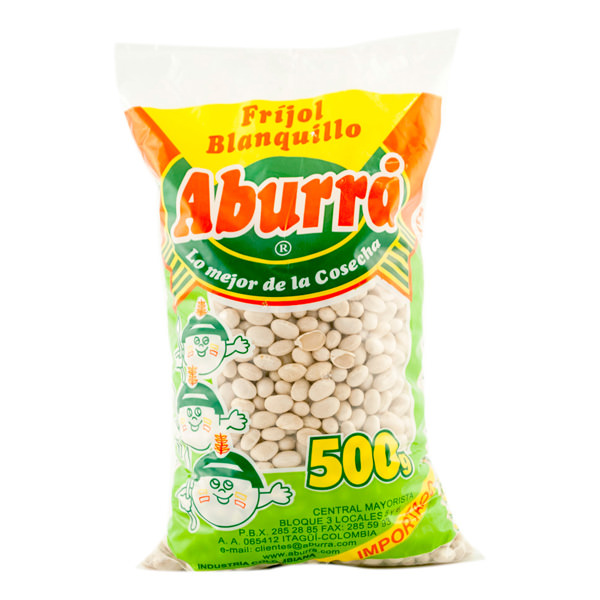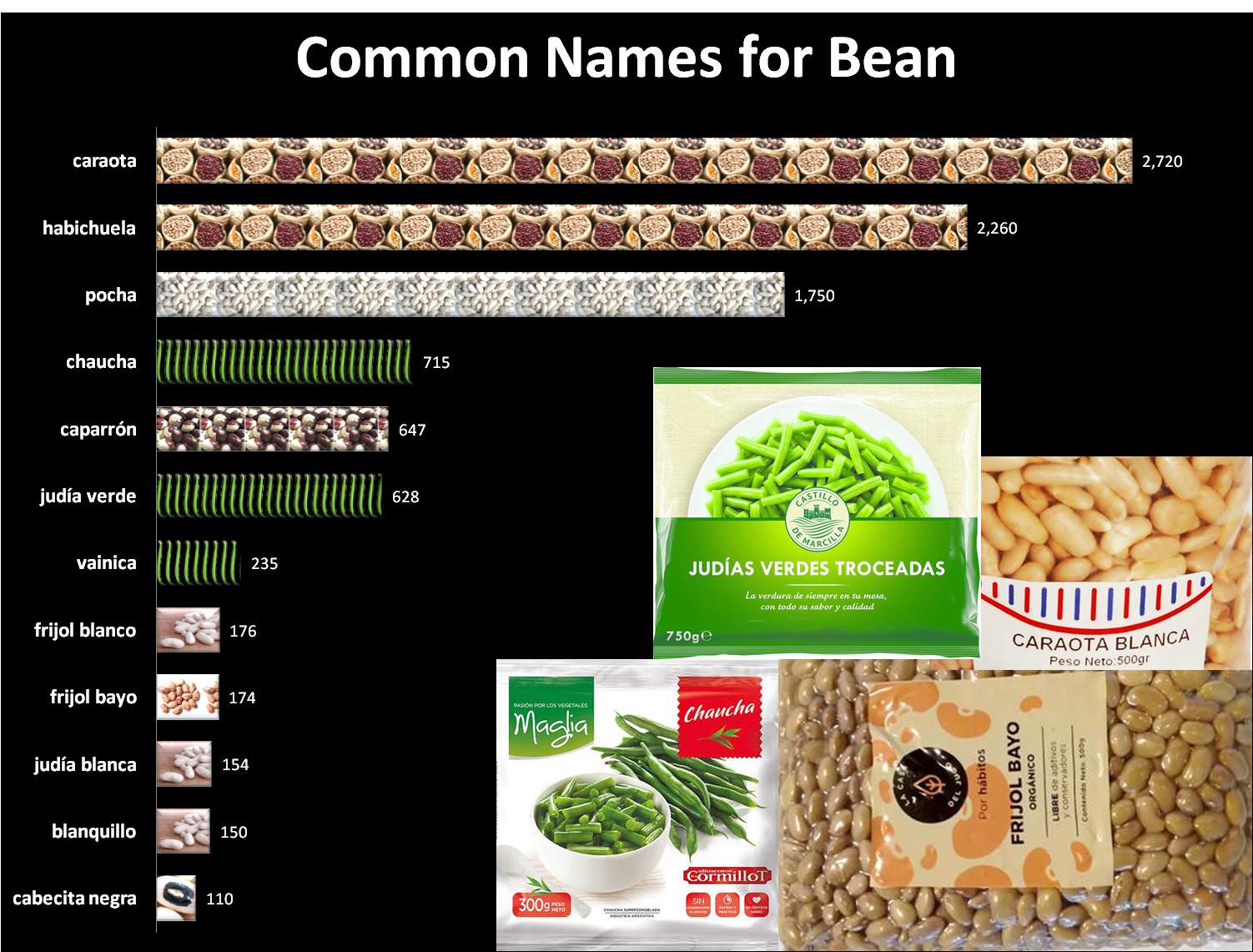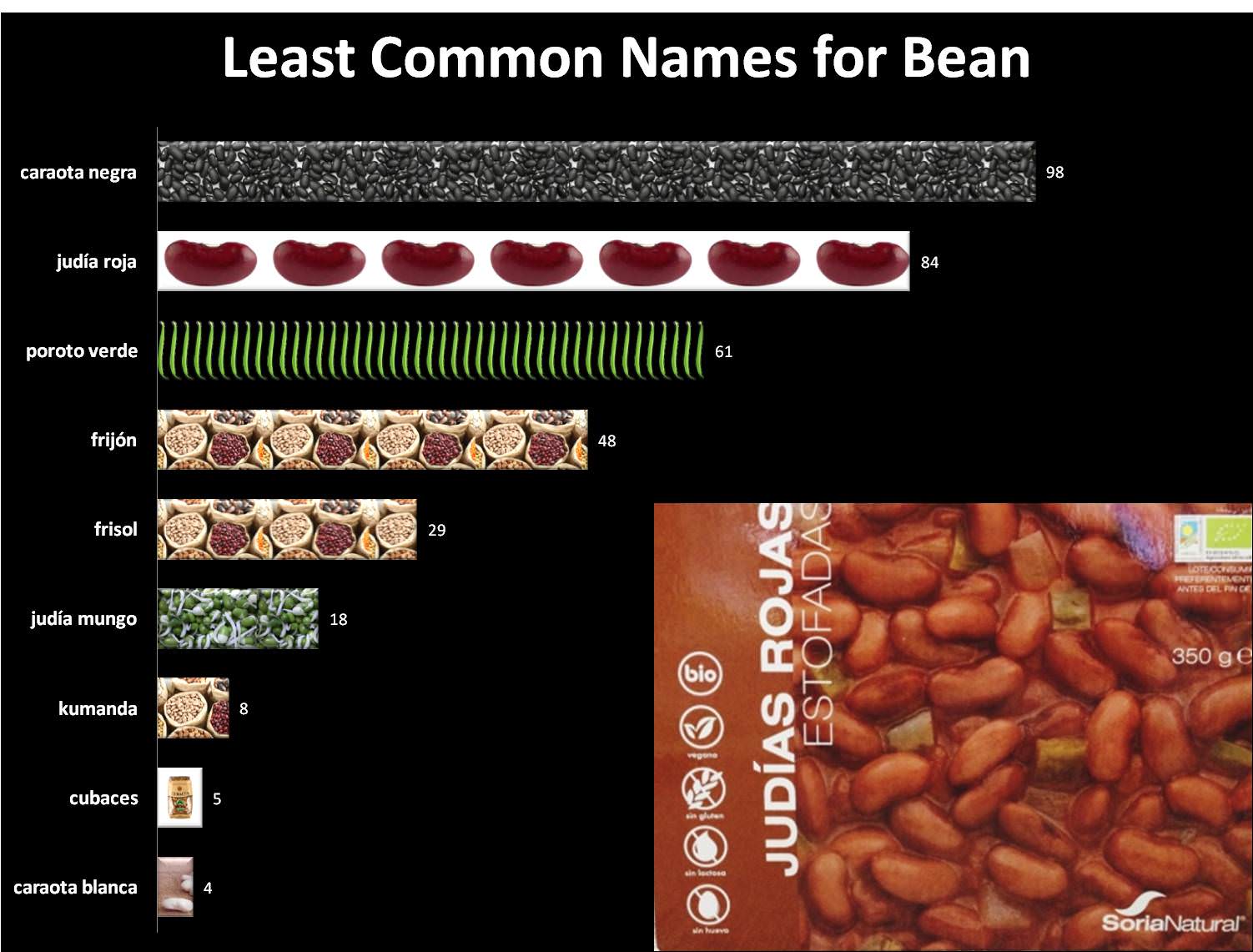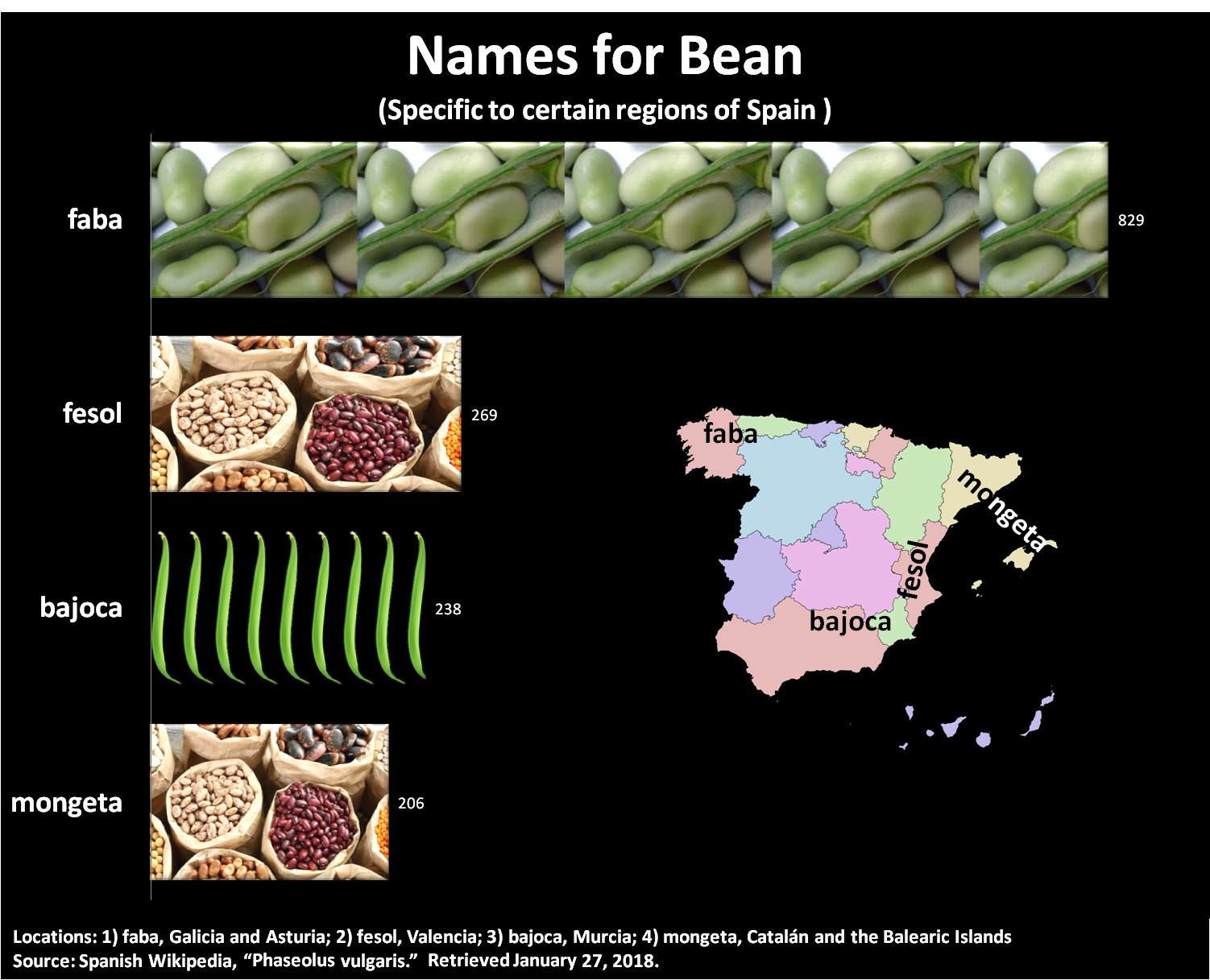Lots of good answers here, so I'm not trying to outdo anyone (especially since I am not a native speaker of Spanish). What with so many different names for beans, though, I really started getting confused about what name for bean was used where. More importantly, I thought it would be helpful to you, myself, and others reading this post, if I could find a way to figure out which ones would be most useful to learn.
Clearly, if you know you'll be visiting a certain region then you'll want to focus on vocabulary particular to that region, but for the vast majority of us who won't be traveling to foreign lands and simply want to be able to take our Spanish to the next level, I thought it might be useful to rank these various beans on what their frequency is in online Spanish newspapers. So, I took all (or nearly all) of the bean names listed in this thread and then also the ones listed in
(Big thank you to Nicolás for including it in his answer, otherwise I might not have ever visited it.)
I then added language (Spanish) and type of page (News). I made sure to set the query up to return results for both singular and plural forms (though you will just see the singular listed in the charts below) and added other measures to ensure that what was returned were pages about beans and not something else. It wasn't an exact science and for at least one word (blanquillos*) I had to fiddle with the query a bit to make it work, but, if you don't want to learn the nearly three dozen names for beans that you will see between this thread and the Wikipedia article I referenced, and just want to focus on those you might see as you start getting to a point where you can read Spanish news articles, the charts below might help.
*If you type in "bean" into any online English-Spanish dictionary/translator, I doubt any of them will list "bean" for "blanquillo." Term Bank did not and neither did WordReference. But since the Wikipedia article mentioned that this was, indeed, the name for bean in Colombia, I did my best to find some evidence that it is used as a word for "bean," and was able to do so. To back up a bit, Term Bank does list some meanings for "blanquillo." Among many other things, it lists "small fish" (in Chile) and "chicken egg" (in several others). Despite the fact that Term Bank mentions it is little used as "chicken egg," I saw several images surface for this word. Most of the initial images were of fish, but I'd have to say that the second most popular image was that of what appeared to be chicken eggs. Regardless of how frequently people use it for that, I was also able to find at least one image of it as a product that might be sold in a supermarket. Here it is:

Here you can see that it is prefaced by "frijol," but it appears that this type of bean is often simply referred to as "(los) blanquillos."
As for the rest of the beans, I tried to use an image of the bean that was most representative. If the word was just a generic name for the bean, I used a generic image (the sacks of beans). I know that some generic words for beans sometimes refer to a specific variety of bean in certain regions. For example, Javier above mentions that in Puerto Rico, they used "frijoles" to refer to "black-eyed peas." So, please keep that in mind as you look at the charts.




As you may have noticed, where I could fit them in, I also added product images. There's nothing quite like seeing actual merchandise to help remember a foreign word for something. I can't buy everyone a plane ticket to every Spanish-speaking country in the world, but this is the next best thing.
I did not include one word found in the Wikipedia article — calbotes. I just couldn't find strong enough evidence linking it to the word "beans," despite the article's claims that "calbotes" is the word for beans in Navarra and Tierra Estella.
The last thing I want to mention in this post (and I'm rather shocked it wasn't brought up yet ... ) is what word for bean should you use when you want to say "coffee bean?" Reverso seems to prefer "grano de café" as does WordReference. You'll find that and more if you search for "coffee bean" via Term Bank.
Source Notes: Nothing other than what has already been given, except for attribution for the image of the caparrones that was used in the second chart above. Attribution is as follows:
De Xufanc - III 2011, CC BY-SA 3.0, https://commons.wikimedia.org/w/index.php?curid=14790785
